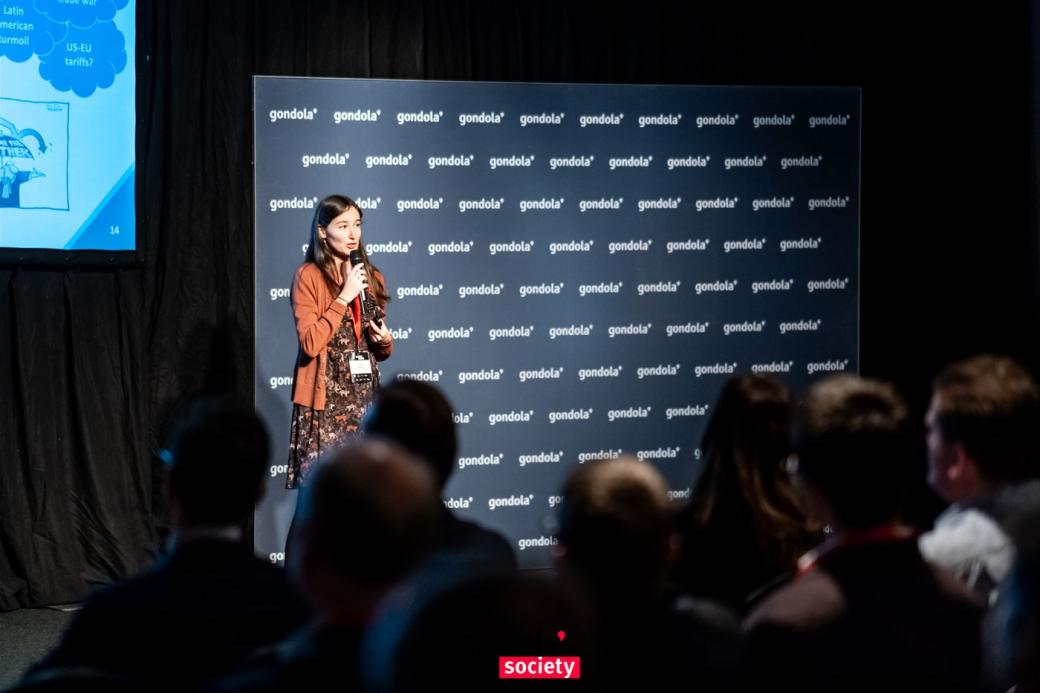We’re all ears!

Reality check
Economic research and analysis is a core task of the NBB. Our analyses are used primarily by policymakers, but we also keep the general public informed through more accessible publications and presentations. As economists, we rely first and foremost on macroeconomic data and models to carry out analyses, after which it’s time for a reality check! Our regular contacts with the business community allow us to gather “business intelligence” and provide us with useful information to test our analyses and forecasts.
Official macroeconomic statistics are only available with a certain delay and thus do not give a picture of the economy in real time.
Feedback from business leaders provides us with valuable insight into the current economic situation. This is particularly interesting when uncertainty is high or when the business cycle could be reaching a turning point. Indeed, official macroeconomic statistics are only available with a certain delay and thus do not give a picture of the economy in real time. During the COVID-19 pandemic, for example, it was crucial to determine quickly and accurately the impact of far-reaching health measures so that policymakers could form a clear view of the economic situation. Waiting for official statistics was thus not an option.
In addition, the information we obtain from businesses can help us to better understand their decision-making processes and response to shocks, thereby allowing us to improve our forecasts.
Outreach
The NBB collects “business intelligence” through multiple channels:
Surveys
The most traditional channel for gathering information from the business community is surveys. For almost 70 years, the NBB has conducted a monthly survey of around 3,000 companies to find out how they view the economic situation, based on questions regarding production, order books, employment and prices, amongst other things. In this way, we gauge the most recent developments and the current situation, as well as expected trends. The results are published in the form of net balances of positive and negative responses, expressed in percentage terms.[1].
The main advantage of these surveys is that the data are quickly available at a fixed time, namely just before the end of each month. The data therefore serve a signal function: they often provide a first indication of a turning point in the business cycle long before official statistics are available. In addition, the surveys also yield information which is missing from traditional statistics. For example, survey questions on capacity utilisation (and possible barriers to production) tell us something about labour market tightness or supply chain bottlenecks. Moreover, as the questionnaire and methodology are harmonised at European level, the results from different Member States can be easily compared.
One downside is that this harmonised methodology does not leave a lot of room for flexibility. We cannot simply adapt the questionnaire based on current events.
One downside, however, is that this harmonised methodology does not leave a lot of room for flexibility. We cannot simply adapt the questionnaire based on current events. Furthermore, while the figures (net balances) can be processed quickly, they do not provide us with anecdotes or narratives. Finally, the survey has suffered from a declining response rate for some time: fewer and fewer companies are willing to participate in it.
[1] For more information on NBB surveys, please visit https://www.nbb.be/en/statistics/opinion-surveys.
Breakfast meetings
Twice a year, a dozen CEOs from various sectors join us for an informal breakfast meeting with the governor. Following a brief introduction by us, they share their assessment of the economic situation and outlook, opportunities and challenges in a confidential setting. They can speak freely and express any concerns they may have.
Our meetings with CEOs focus on gathering narratives, not figures.
Our meetings with CEOs focus on gathering narratives, not figures. A summary of the meeting is drawn up and shared with participants and the NBB's Economics and Research Department. The group of participating CEOs is very small and varies from one meeting to the next. Therefore, we do not use the information obtained as a general economic indicator or to make comparisons over time.
This more informal, anecdotal approach is an excellent way of identifying new trends and structural changes and serves as a back-up (or perhaps counterpart) to the economic narrative woven into the NBB's macroeconomic outlook. For instance, after the peak of the COVID-19 pandemic, a sharp drop in employment was expected. However, at our May 2021 breakfast meeting, a majority of CEOs told us that they would soon start looking for new staff and that the labour market was very tight. This information was later confirmed by other sources: employment grew strongly throughout 2021 and the Eurostat job vacancy rate[2] reached unprecedented levels in the second half of the year.
[2] The job vacancy rate is the number of open vacancies compared to the total number of jobs.
Breakfast meeting of 16 November 2022
Our most recent CEO breakfast meeting was held on 16 November. The main takeaways from this meeting with 9 CEOs were the following:
- Companies (in particular multinationals) are concerned about the impact of wage cost increases (giving rise to an uneven playing field).
- Companies fear a negative long-term impact on investment and hiring in Belgium as a result of the competitiveness gap.
- More structurally speaking, participants reported a high degree of complexity when doing business in Belgium.
- Companies seem less concerned about energy prices, but a number are planning measures to reduce energy dependence. They acknowledge this is a process that takes time.
- Supply-side shortages and supply bottlenecks have become less substantial.
- Increasing productivity is seen as the solution to higher labour costs. For manufacturing firms, this can be achieved through automation, but requires additional investment. For service firms, this can only be achieved through a higher workload.
- Cost increases can only be partially passed on to consumers, and CEOs fear the erosion of their profit margins, which puts value creation on the Belgian market under pressure.
- The labour market remains tight and companies are still struggling to attract the right talent.
- On the housing market, new, energy-efficient homes are in high demand; no price correction is expected for these homes.
Economic relations
Furthermore, a group of NBB staff is involved in establishing and maintaining relations with various stakeholders, not just[3] in the business community. These networks and high-level informal contacts allow us to gather useful information about the economy, highlight the Bank’s transparency, accessibility and accountability, and enhance our visibility. One way we do so is through the organisation of regional events, at which the governor or directors present NBB analyses to the general public.
Our colleagues also maintain close contacts with numerous federations, chambers of commerce and other business organisations, as well as with individual companies, through meetings with board members. These face-to-face gatherings sidestep a major drawback of surveys (namely, the lack of context, anecdotes and narratives), but this way of collecting information is clearly more time-intensive and thus limited to smaller groups.
[3] The NBB’s Economic Relations Unit interacts with numerous stakeholders including government bodies and public entities, the media, educational institutions, experts, NBB-supervised institutions and the general public.
Ad hoc surveys
In addition, we conduct ad hoc surveys in cooperation with various sector federations. This cooperation dates back to the COVID-19 period when surveys were conducted on a weekly basis by the government’s Economic Risk Management Group (ERMG) to continuously monitor the impact of the pandemic - and the measures taken in response - on the economy. As the pandemic abated, the need for a weekly update faded. However, as this form of cooperation between the NBB and sector federations had proved useful, the network was not completely dismantled. Whenever the need for timely information is high, we send out an ad hoc survey. For instance, in November 2021, we asked about supply chain bottlenecks; in April 2022, we surveyed companies about the impact of the war in Ukraine; and in September 2022, the survey focused on the effects of rising input costs. As a testament to their relevance, the results of these ad hoc surveys are regularly picked up and published by various media outlets.
In addition to these initiatives, the NBB is always open to requests for information or data, and we are regularly asked to present our economic analyses and forecasts. Thus, my colleagues and I can often be found at events organised by leading business federations and associations.

Last but not least, we are in the process of launching a new project, based on talks with various business leaders. In addition to our Business Cycle Monitor, we believe there is room for a publication that delves a bit deeper into the economic situation in key sectors and different regions of the country. More information will (hopefully) follow in 2023, so stay tuned!

